Marcia Langton and Tom Calma say the Indigenous voice to parliament referendum has been shaped by our racist history
Key voice architects warn a No vote will have a ‘profoundly negative effect’ on Indigenous Australians who have worked on reconciliation for two decades.
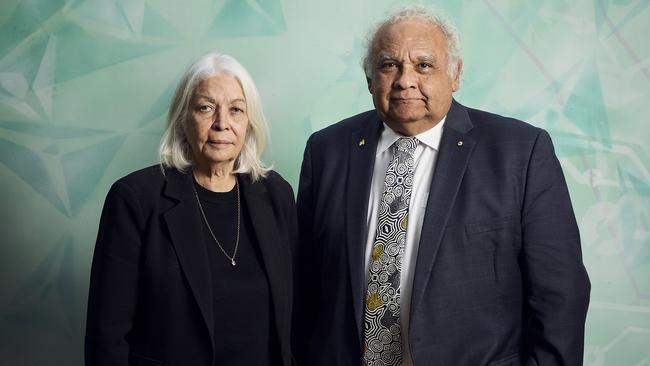
Key voice architects say the referendum campaign has tapped into “a deep well of historical racism” and warn that Indigenous people will need to work “very closely” with politicians in the event of a Yes vote to ensure voice legislation “realises their ambitions for greater control over their lives”.
In an article for world-leading medical journal The Lancet, Marcia Langton and Tom Calma join fellow Indigenous academics Ian Anderson, Yin Paradies and Ray Lovett in cautioning a No vote will have a “profoundly negative effect” on Indigenous Australians who have worked on reconciliation for nearly two decades.
It comes as leading Yes campaigner Noel Pearson said a failed referendum would be “a disaster for all of us” and there was no plan B to improve the lives of Indigenous Australians, while voice supporter Frank Brennan said the poll had “created a hell of a mess” and sent race relations in Australia backwards.
With less than two weeks until polling day and early voting open across the country, Anthony Albanese on Tuesday declared the referendum was “certainly winnable” and undecided voters he had spoken to thought the question they would be asked on constitutional recognition through a voice was “fair enough”.
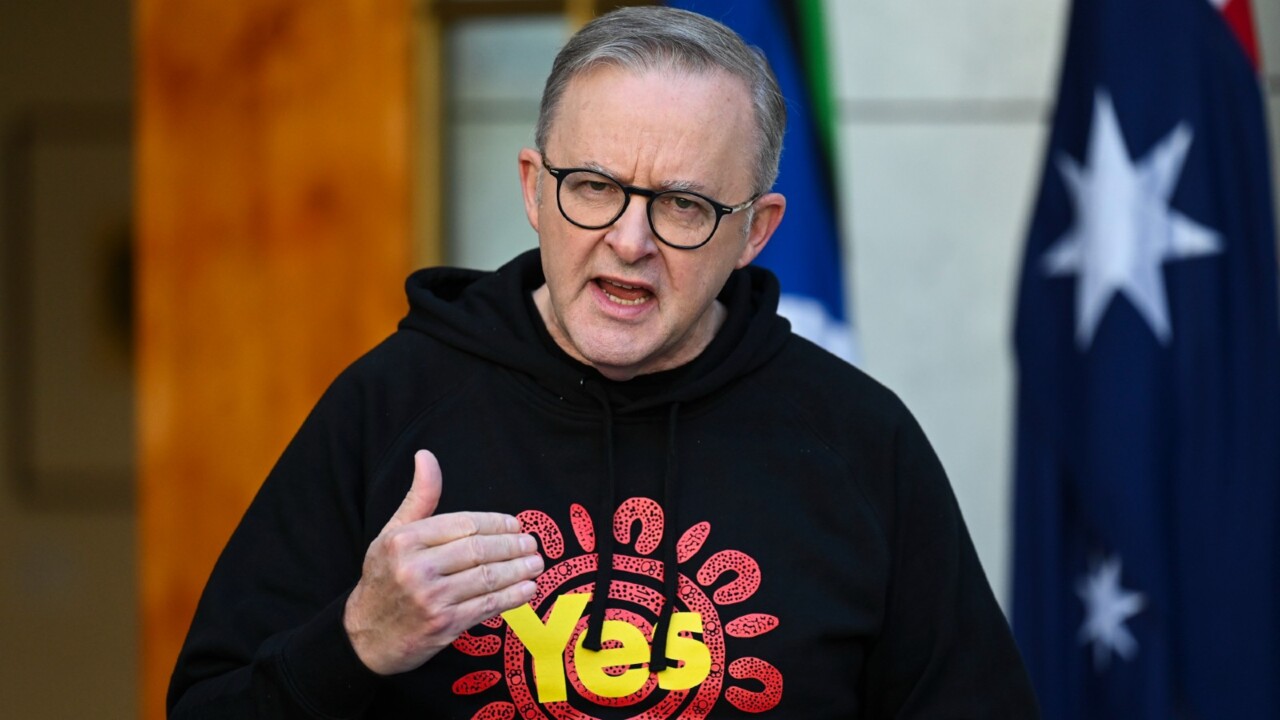
Acknowledging that the voice was a compromise position for Indigenous leaders after “many conservative politicians would not accept the inclusion of rights in the Australian Constitution”, Professors Anderson, Paradies, Langton, Lovett and Calma say there are early signs the referendum process is causing Aboriginal and Torres Strait Islander people higher levels of racism.
“We posit that this is partly because the referendum process taps into a deep well of historical racism that originated on the Australian frontier when Indigenous peoples ‘were violently dispossessed from their lands by the British’,” they say in the September 28 Lancet article, quoting Indigenous activist and human rights lawyer Hannah McGlade.
“This history has shaped the 2023 referendum and an increasingly divisive campaign between those advocating a Yes and a No position. The voice referendum process creates a substantial cultural load for Aboriginal and Torres Strait Islander peoples. Indigenous peoples are being asked, and expected, to engage in conversations around this topic and, often, are then challenged to defend their position.”
The academics say that to mitigate risk to mental health and wellbeing, there needs to be respectful discourse that counters misinformation emerging about the voice and Indigenous aspirations, noting the government has allocated $10m to support the mental health of Indigenous people during the campaign.
Aboriginal and Torres Strait Islander people will no doubt continue to strive for justice if Australians vote down the referendum, they say, which, regardless of the outcome, “will have a profound effect on the future relationship between Aboriginal and Torres Strait Islander peoples and other Australians”.
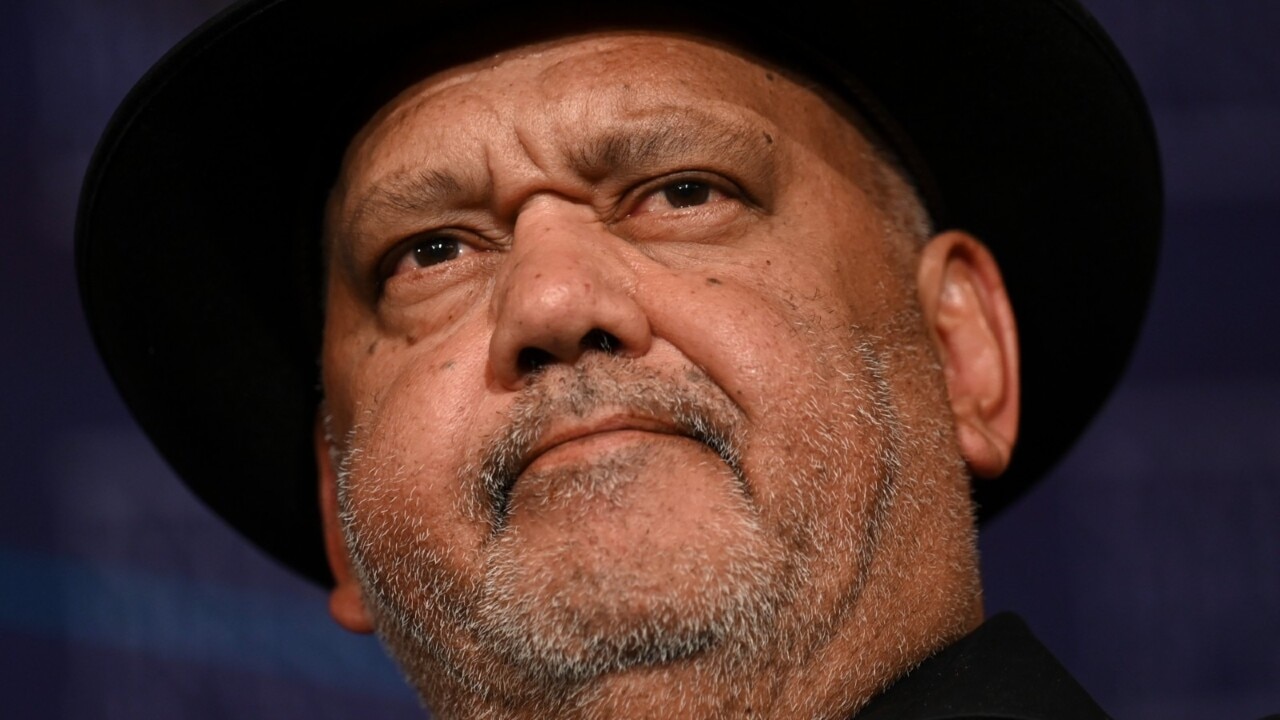
“Even if the vote is for Yes, Indigenous peoples will need to work very closely with the Australian parliament to ensure the voice legislation realises their ambitions for greater control over their lives. A voice does not guarantee outcomes,” they write.
“A voice provides a stronger platform through which governments can work more effectively with Indigenous Australians at a regional and national level.”
Mr Pearson said it would take a couple of generations for the voice to turn Indigenous Australians’ life expectancy around but there would be heartbreak and absolute despair if the referendum failed.
“I have been at this for 30 years working on these problems from the ground up, and I’m telling you that there is no plan B,” he told 3AW radio.
“No will be a disaster for all of us. We will all lose, including the No campaigners. We will lose. If we vote Yes, we’ll all win, including the No campaigners. This will be good for them and for the entire country if we vote Yes.”
The Cape York leader said he would not seek to be elected to the voice but would advise and mentor the next generation of leaders so that they could help implement plans to improve the lives of Aboriginal and Torres Strait Islander people.
His message to Australians thinking of voting No was: “Really? That people who lived here for 65,000 years are going to be rejected? Their recognition is not going to be implemented in the Constitution after 15 years?”
Hitting out at three “serious missteps” by the Albanese government, Father Brennan said the lack of a bipartisan process following last year’s Garma festival, not releasing any draft voice legislation and the Prime Minister hand-picking 21 Indigenous leaders for the government’s referendum working group had harmed constitutional recognition and reconciliation.
He said it was “dreadful” of Mr Albanese to suggest the referendum would have been worthwhile even if it failed because it brought Indigenous disadvantage to the fore of public discussion.
“I don’t know a single Aboriginal person who says they’d want to go through this again and that it was worth doing,” he told 2GB radio. “What we’ve done is we’ve created a hell of a mess and in terms of race relations we’re well behind the eight ball from where we were prior to the Garma announcement.”
Mr Albanese said the voice would give respect to Indigenous Australians and something to non-Indigenous Australians too.
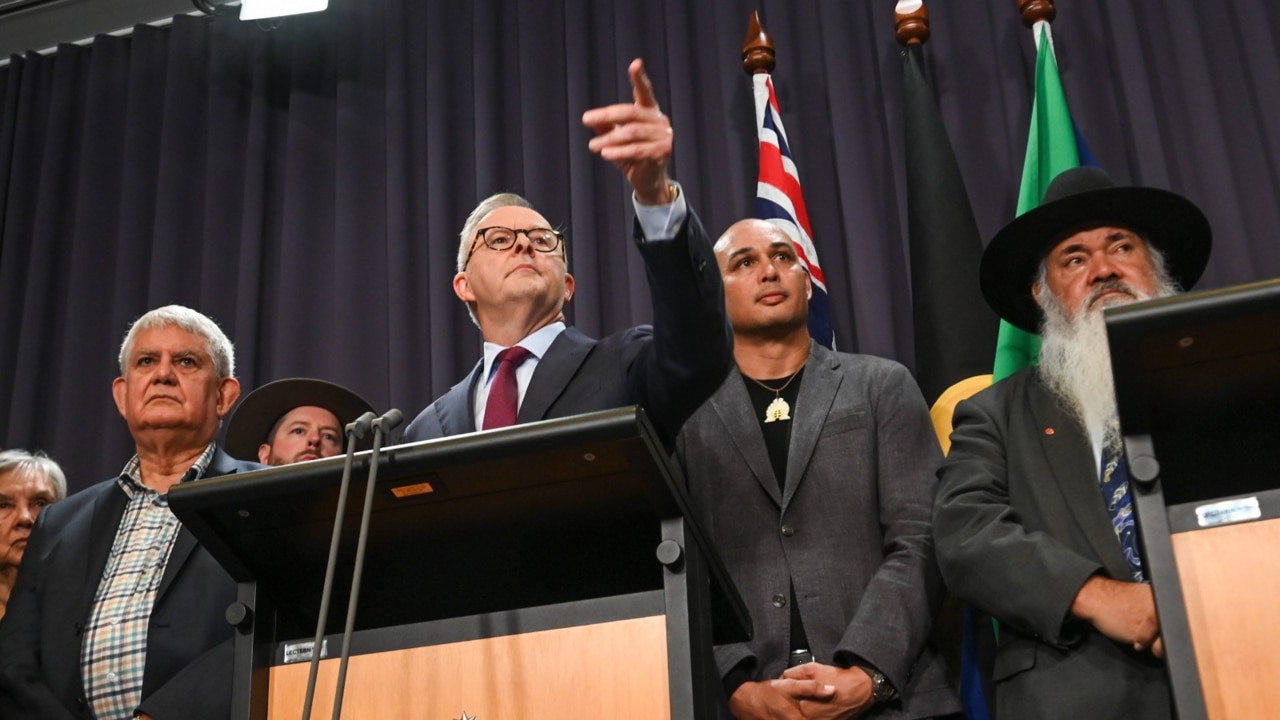
“Because we will feel better about ourselves, like we did when the apology (to the Stolen Generations) happened,” he told Hit100.9 Hobart radio.
“We just felt better. An act of generosity. When you do something for someone else, then you feel better about yourself.”
Leading No campaigner Jacinta Nampijinpa Price said Australians couldn’t wait for the referendum to be over so parliament could instead focus on cost-of-living issues, insisting the voice was not the way to achieve great outcomes for marginalised Indigenous people.
“Speaking to people face to face as they go in to cast their vote, they are more determined to vote No to any level of division within our Constitution, but they are saying Yes to maintaining equality in Australia,” she said while campaigning in Perth.
“Those that we’re speaking to on the ground … They’re ready to stand up for the benefit of all Australians, but particularly our most marginalised.”

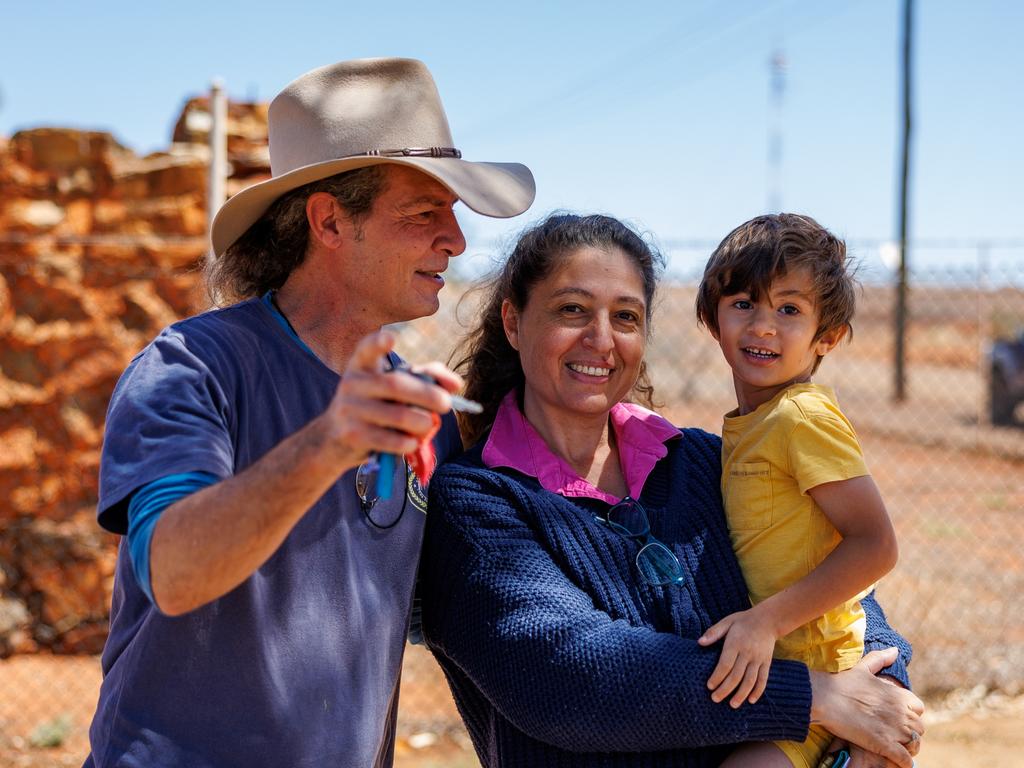
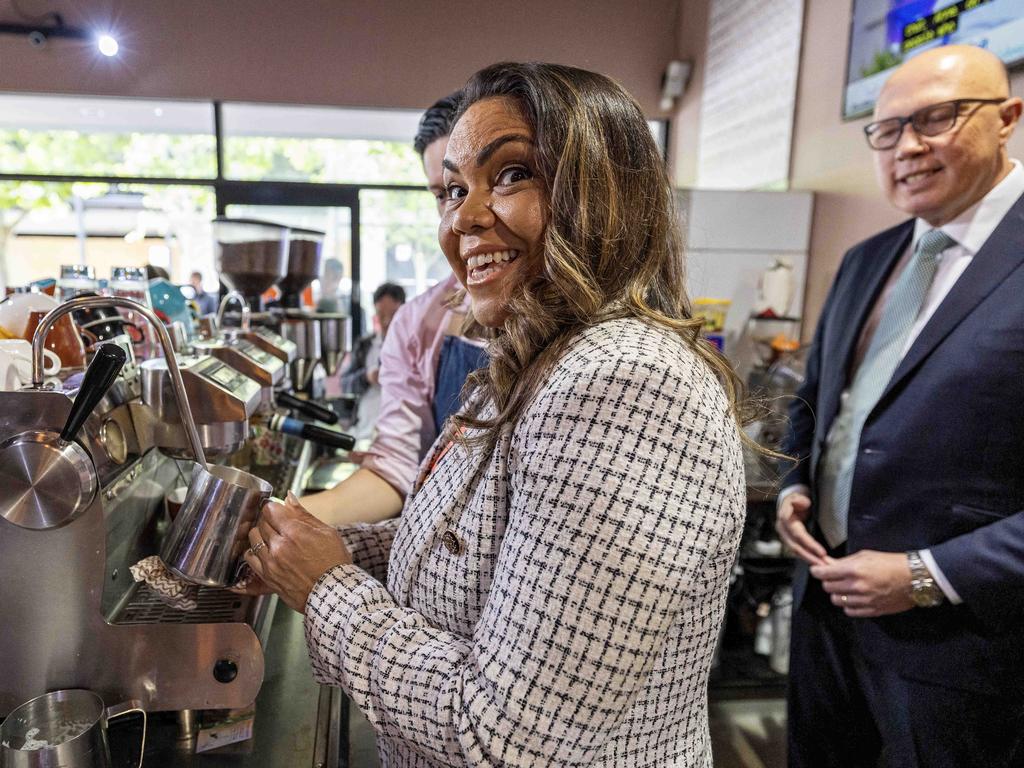
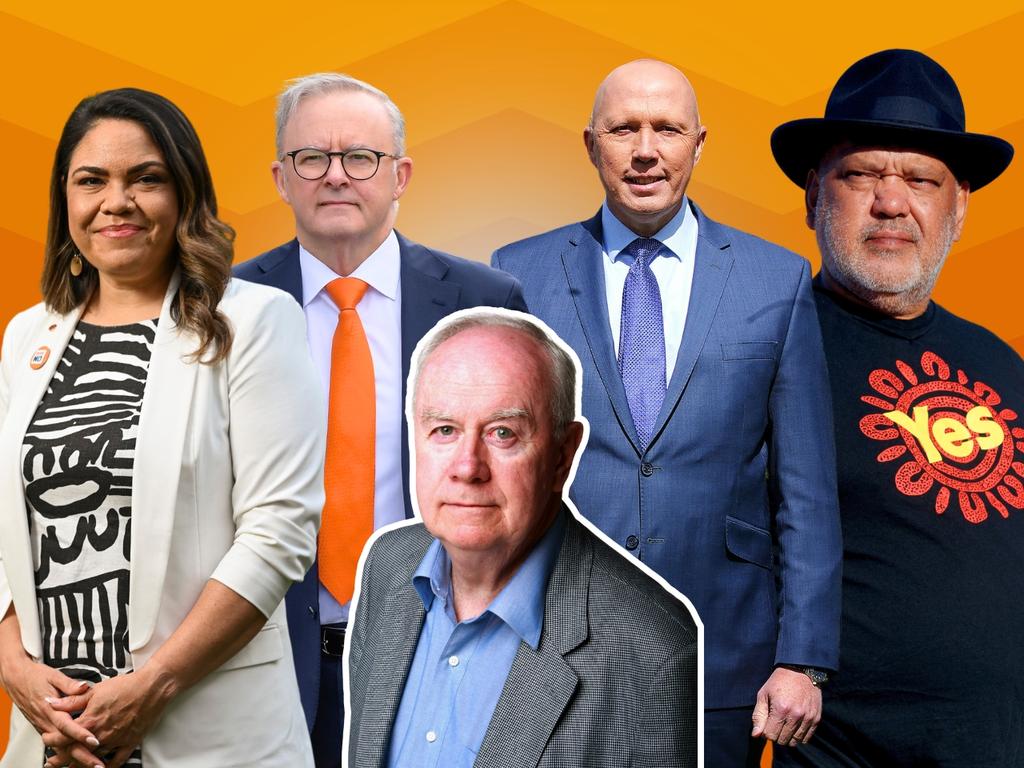



To join the conversation, please log in. Don't have an account? Register
Join the conversation, you are commenting as Logout